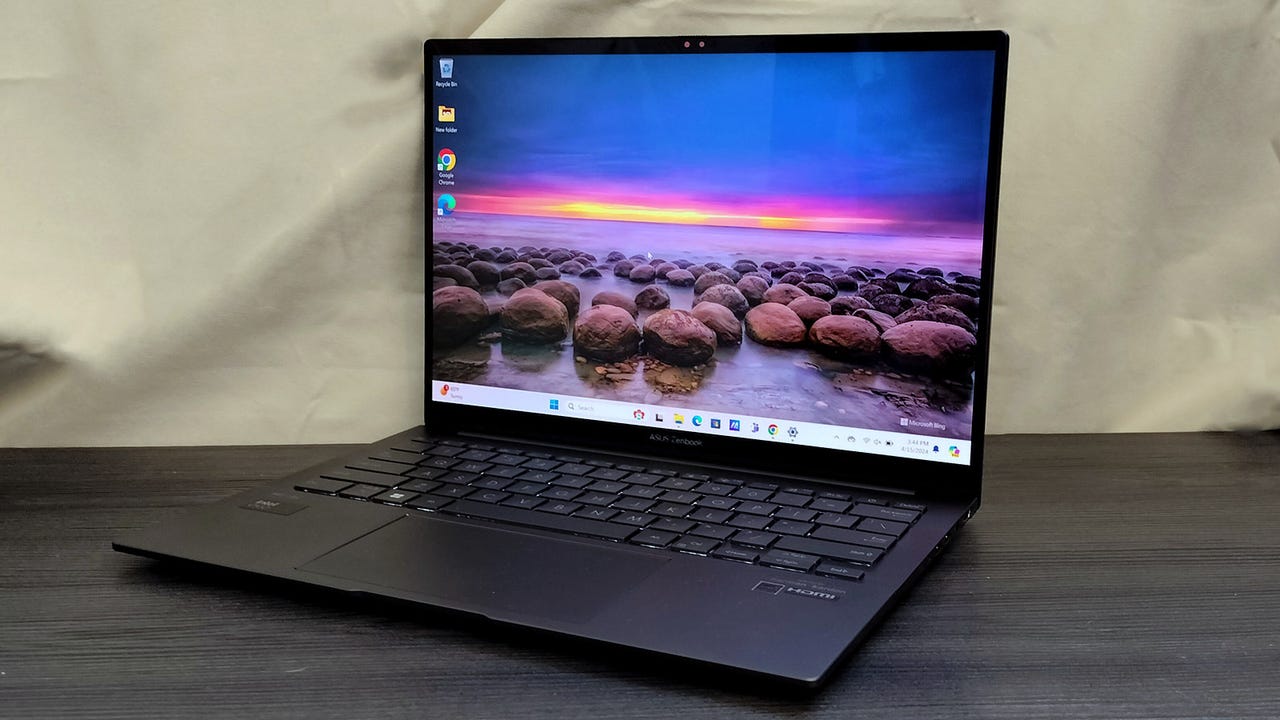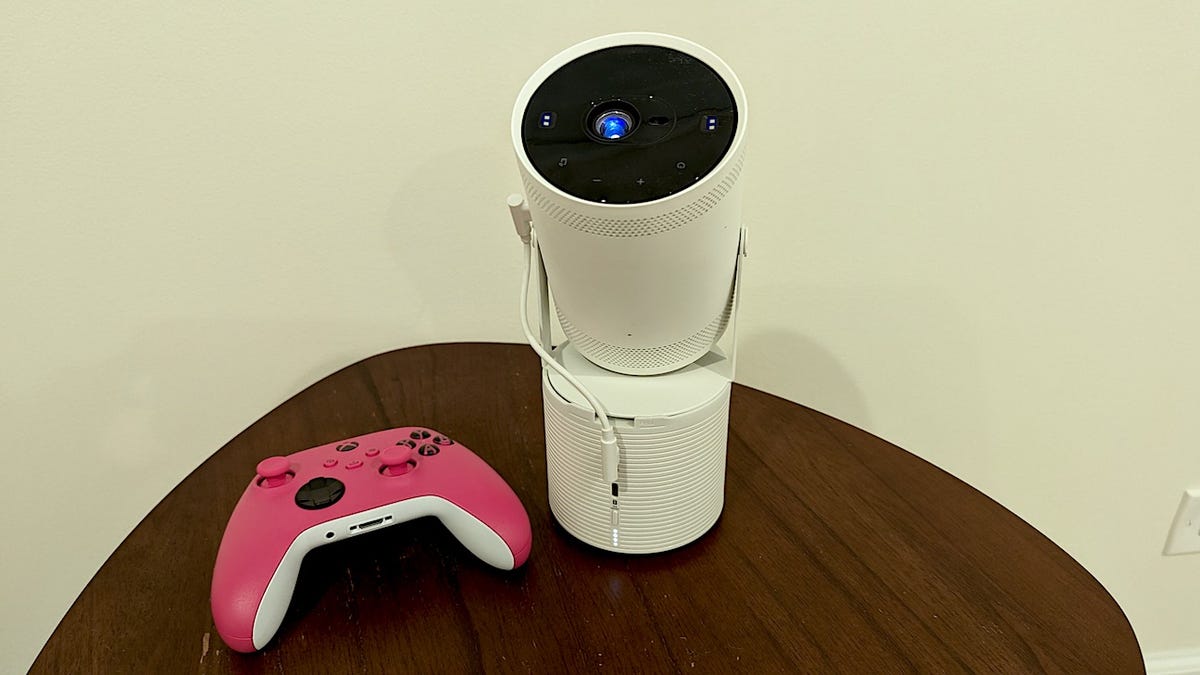BOOK THIS SPACE FOR AD
ARTICLE ADWhat's the deal?
Best Buy has slashed the price tag of the Asus Zenbook 14 by a cool $300 in the days leading up to Black Friday. Right now, you can buy the laptop for $500.
Also: The best Black Friday deals live now
ZDNET's key takeaways
The 2024 Asus Zenbook 14 is available at Best Buy for $799, and is a contender to be one of the best work laptops of the year.It's affordable, sports the latest hardware, and has a long battery life; all packed into a form factor that weighs less than three pounds.As great as it is, this laptop has a tendency to run hot.Among the plethora of work laptops, the 2024 Asus Zenbook 14 stands out above the rest. It performs incredibly well, has a comfortable keyboard, long-lasting battery, and bright, smooth display. There isn't a single category where this device doesn't excel. This Zenbook model is one of the best laptops I've used this year alongside the Dell XPS 16, and is nothing short of fantastic -- especially at this price point.
Also: I tested Lenovo's Windows laptop that doubles as an Android tablet, and it has so much potential
One of the reasons why the Zenbook is so popular is its sheer versatility. The model I went hands-on with here features the Intel Core Ultra 5, but there are additional configurations available, including with the Intel Core Ultra 7 and 9 processors featuring Intel's AI Boost NPU. Its high degree of customizability, combined with the bold form factor puts it up against Dell's XPS series as a high-performing machine with a unique look.
Now that I've sufficiently sang its praises, let's get into what makes the Zenbook 14 so good, starting with its battery. No matter which power mode the machine is set to, you can expect it to last the entire workday. I performed my usual test of running an endlessly playing YouTube live stream at 720p and 50 percent brightness.
On Best Performance, the battery ran for about 6.5 hours before dying. On Balanced, it surpassed that time by going over 10 hours. Then on Best Power Efficiency, the Zenbook 14 lasted a whopping 12 hours. Keep in mind these times were all achieved without the battery saver turned on. With that setting enabled, I expect run times to be even longer.
I was genuinely surprised by how long the device lasted, and haven't been this impressed with a laptop's battery performance since the Acer Chromebook Spin 714. It seems the model's longevity is owed to the hardware.
Also: One of the best 13-inch laptops I've tested has marathon battery life and a bold design
Asus went with an energy-efficient chipset for this laptop, which greatly contributes to its impressive battery life. The processor on my review unit was an Intel Core Ultra 5 125H bundled with an integrated Intel graphics card and 8GB of RAM. Make no mistake: that is not a particularly high-end configuration. But it doesn't need it. It performs this efficiently thanks to its secret weapon: a neural processing unit (or NPU).
NPUs are a recent addition to laptops, with 2024 seeing their large-scale integration. To oversimplify what they do, NPUs harness AI to boost the performance of CPUs and GPUs by taking some of the load off them. For example, while testing this laptop, I was able to have 50 tabs open across six windows, all without experiencing a drop in performance. Impressive performance indeed, considering the hardware.
Also: This inexpensive laptop brings back a buzzword that was once the talk of the tech industry
In addition, Asus equipped this laptop with a 14-inch, OLED display outputting a Full HD resolution (1,920 x 1,200 pixels) image at a variable refresh rate of either 60GHz or up to 120GHz, depending on your configuration. Tthe screen covers the entire PCI-3 gamut, enabling bright, vivid colors and a FullHD resolution that results in highly-detailed images. Plus, the bezels around the display are very thin, resulting in a display with a 16:10 aspect ratio for wide-angle viewing.
All in all, this laptop has a marvelous design. It weighs less than three pounds yet is quite durable since it has an exterior made primarily from aluminum. Even the screen is tough, as Asus used Corning Gorilla Glass in its construction. However, since it's so thin, there aren't a ton of ports on this laptop. All it has is one USB-A input, two USB-Cs, a headphone/earphone jack combo, and an HDMI port. At least the basics are covered.
Personally, I appreciate laptops with great keyboards, and the Zenbook 14 does not disappoint. It comes equipped with the company's patented ErgoSense technology which, as the name suggests, makes the keyboard ergonomically friendly. Each of the keys has a travel distance of 1.4mm travel distance, letting you type on them without having to press the buttons all the way down. This alleviates some of the stress on your fingers. Also, ErgoSense replicates the key spacing on full-sized keyboards, ensuring accurate typing.
Cesar Cadenas/ZDNETNow you may be wondering: what's the catch? Is the Asus Zenbook 14 as perfect as you say it is? Well, there are a couple of considerations here. One issue is more of a pet peeve of mine: the speakers are at the bottom of the laptop, facing down, resulting in some muffled audio. Fortunately, they're still powerful enough despite their poor placement. Music and media sound great coming from these speakers, but I did notice some audio distortion occurring at high volume.
Also: Lenovo's new $749 ThinkBook may be the best-value Windows laptop of 2024. Here's why
My biggest issue with the laptop is the fact it can run incredibly warm. You can't even type on the keyboard or have it on your legs without discomfort. Heat vents are found on the bottom and the side, but they don't offer much relief. This problem is exacerbated if you try to use the laptop while charging. There's so much heat that typing on the keyboard becomes uncomfortable. You're honestly better off not using the laptop during this time.
ZDNET's buying advice
The Asus Zenbook 14 is a solid laptop that is as versatile as it is high-performing. It boasts great performance, a crisp display, sturdy design, comfortable keyboard, and that's just the tip of the iceberg. I didn't even mention the 1080p webcam, the anti-fingerprint coating covering the trackpad, or maybe the best part of all: the affordable price.
You can purchase my review unit's configuration on Best Buy for $799.99, but there's always the option to upgrade the hardware if you're looking for something with more power behind it. A Zenbook 14 sporting an Intel Core Ultra 7 155H processor, Intel Arc GPU, 16GB of RAM, and 1TB of storage will start at $1,299 but come with significant jump up in processing power. No matter which one you get, it'll be worth the low price.
We use a combination of methods to test laptops here at ZDNET. First, we acquire data from benchmarking software to analyze a system's metrics under the hood, and compare those to advertised numbers. Then, we spend an extended amount of time with the laptop (usually a week or two) using it the same way a normal consumer would, in order to analyze its portability, form factor, and how well the battery actually holds up, among others. For an extensive breakdown, check out our comprehensive laptop testing methodology.
Benchmarking: We run a series of tests to put the computer's hardware through the wringer in order to see what it's capable of. Cinebench is one of the most commonly-used hardware testing suites, which tests the laptop's rendering performance on single and multiple CPU cores. PCMark 10 is another powerful program that covers a wide variety of tasks performed in the workplace.Processor: The "brain" of the laptop, and one of the most important factors that determines performance. This is tested in benchmarking software.The display: Brightness is measured in "nits," and color spectrums are tested in benchmarking software.
The graphics processor (GPU): We test the GPU with a combination of benchmarking software, gaming, and media playback.
Physical form factor: We carry the laptop around for at least a week and note how well it commutes.
Battery testing: We test a unit's battery in a few ways. A handful of benchmarking programs have their own battery testing components, but we also will just let the laptop run for as long as it can under a medium load. The human element: As we mentioned earlier, metrics and system data is important, but numbers alone don't give you the full picture. This is where we weave in our personal experience with the device and tap into the practical use cases that consumers actually care about.Ultimately, our goal is to break down the capabilities of each and every laptop we test into digestible terms that real people can find useful.
.png)
 2 hours ago
3
2 hours ago
3 















 Bengali (Bangladesh) ·
Bengali (Bangladesh) ·  English (United States) ·
English (United States) ·